


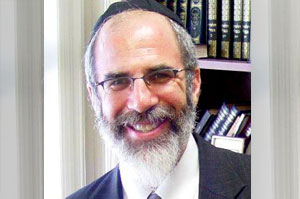
Dr. Henry Abramson is Dean of Academic Affairs and Student Services at Touro College South in Miami Beach, FL.
Born in northern Ontario, he earned his PhD in History from the University of Toronto with a thesis on the Jews of Ukraine that was published by Harvard in 1999.
His graduate career coincided with a growth of interest in traditional Judaism, and he studied in Yeshivat Ohr Somayach under Rabbi Uziel Milevsky z”l and Rabbi Mendel Weinbach z”l. He has held post-doctoral fellowships and visiting appointments at Cornell, Oxford, Harvard and the Hebrew University of Jerusalem, and is the author of several books on Jewish history and thought.
His research has been recognized by the National Endowment for the Humanities, the United States Holocaust Memorial Museum, the Social Studies and Humanities Research Council of Canada, and he has won numerous teaching awards, including the Excellence in the Academy award from the National Education Association.
For more information, please visit: jewishhistorylectures.org.
 4:30
4:30
Rashi (Rabbi Shlomo ben Yitshak) was a great 11th century commentator on the Torah. This brief video outlines his major scholarly contribution within historical context.
Series: This Week in Jewish History
Dr. Henry Abramson (90)
 50:14
50:14
Dr. Henry Abramson (90)
 37:45
37:45
Dr. Henry Abramson (90)
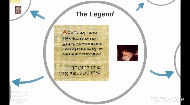 5:39
5:39
Series: This Week in Jewish History
Dr. Henry Abramson (90)
 8:19
8:19
Series: This Week in Jewish History
Dr. Henry Abramson (90)
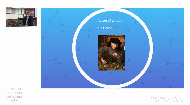 46:52
46:52
Dr. Henry Abramson (90)
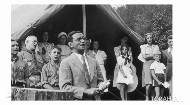 5:24
5:24
Series: This Week in Jewish History
Dr. Henry Abramson (90)
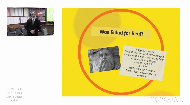 46:56
46:56
In this fascinating Jewish history lecture, Dr. Henry Abramson relates the fantastical story of Eldad Ha-Dani's report of the legendary ten lost tribes. He describes how European Jewry reacted to his account and the affects his tale had on both Jewish and Christian visions of the ultimate redemption.
Dr. Henry Abramson (90)
 6:23
6:23
Dr. Henry Abramson (90)
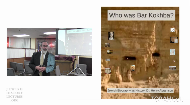 46:07
46:07
Dr. Henry Abramson (90)
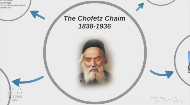 6:59
6:59
In this segment on Jewish history, Dr. Henry Abramson provides a glimpse into the life and works of Rabbi Israel Meir Kagan. The “Chofetz Chaim”’s famous work on the laws of gossip and slander, as well as his authoritative modern commentary on the Code of Jewish law have a lasting impact on the Jewish world today.
Series: This Week in Jewish History
Dr. Henry Abramson (90)
 10:31
10:31
Series: The Kabbalah of Forgiveness
Dr. Henry Abramson (90)
 10:26
10:26
Series: The Kabbalah of Forgiveness
Dr. Henry Abramson (90)
 8:51
8:51
Series: The Kabbalah of Forgiveness
Dr. Henry Abramson (90)
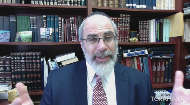 5:00
5:00
Series: The Kabbalah of Forgiveness
Dr. Henry Abramson (90)
 14:58
14:58
Series: The Kabbalah of Forgiveness
Dr. Henry Abramson (90)
 11:01
11:01
Series: The Kabbalah of Forgiveness
Dr. Henry Abramson (90)
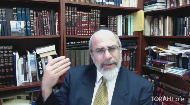 13:06
13:06
Series: The Kabbalah of Forgiveness
Dr. Henry Abramson (90)
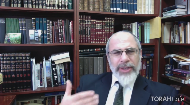 15:45
15:45
This episode of the "Kabbalah of Forgiveness" series speaks about the unique bond that is formed by repairing a broken relationship. Dr. Abramson cites a powerful metaphor from the Midrash, which illustrates the concept of Teshuvah and distinguishes between a human being’s forgiveness and G-d’s
Series: The Kabbalah of Forgiveness
Dr. Henry Abramson (90)
 14:30
14:30
Series: The Kabbalah of Forgiveness
Dr. Henry Abramson (90)
 9:30
9:30
In this segment of his series on forgiveness, Dr. Henry Abramson discusses the counter intuitive mercy that G-d expresses, even during times of anger. He describes relatable behavior patterns that we develop and how to break the habit of responding to situations with anger.
Series: The Kabbalah of Forgiveness
Dr. Henry Abramson (90)
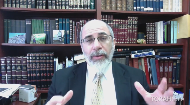 15:55
15:55
Dr. Henry Abramson continues his intriguing series based on the 6th century Kabbalistic work, “Tomer Devorah”. This fourth level focuses on viewing the Jewish nation as a family unit and G-d as a parent figure. This metaphor is expanded to the relationship of humanity in general with their parent in heaven
Series: The Kabbalah of Forgiveness
Dr. Henry Abramson (90)
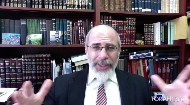 11:27
11:27
In this mystical and practical series, Dr. Abramson presents the third level of forgiveness that is taught in the Kabbalistic work, Tomer Devorah. He explains how G-d Himself takes a part in our cleansing process, using a powerful analogy of a parent washing off his child's filth
Series: The Kabbalah of Forgiveness
Dr. Henry Abramson (90)
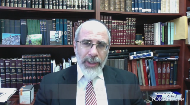 10:45
10:45
This segment of Dr. Abramson’s series on the Kabbalah of forgiveness builds on the concept of G-d overlooking our sins as a model for our own forgiveness. He introduces the idea that our sins generate a destructive energy in the world that demands our rectification
Series: The Kabbalah of Forgiveness
Dr. Henry Abramson (90)
 11:28
11:28
Do you invest time or energy into relationships only to have everything you give thrown back in your face? Part 1 of Dr. Abramson's series on the kabbalah of forgiveness describes the constant betrayal that G-d experiences when we use the life and energy that He invests into creation for negative purposes
Series: The Kabbalah of Forgiveness
Dr. Henry Abramson (90)
 8:10
8:10
In this introduction to his new series on “The Kabbalah of Forgiveness”, Dr. Henry Abramson provides a background for the book “Tomer Devorah”. Written by the Ramak, a well-known and prolific kabbalist, this work takes a uniquely mystical approach to the study of ethical development, known as Mussar
Series: The Kabbalah of Forgiveness
Dr. Henry Abramson (90)
 1:06
1:06
The high holidays are approaching and thoughts of repentance are beginning to surface. As we seek forgiveness from G-d, we begin to turn inward, searching for tools that will help us forgive others and ourselves. This short promotional clip presents a fascinating new series on the Kabbalah of forgiveness, by scholar and dean, Dr. Henry Abramson
Series: The Kabbalah of Forgiveness
Dr. Henry Abramson (90)
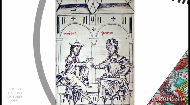 7:51
7:51
Series: This Week in Jewish History
Dr. Henry Abramson (90)
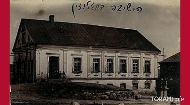 6:37
6:37
Series: This Week in Jewish History
Dr. Henry Abramson (90)
 5:28
5:28
Series: This Week in Jewish History
Dr. Henry Abramson (90)
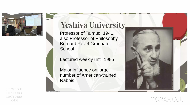 50:48
50:48
Dr. Henry Abramson (90)
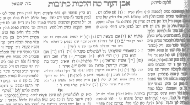 6:00
6:00
Series: This Week in Jewish History
Dr. Henry Abramson (90)
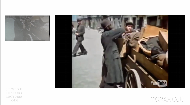 54:25
54:25
Dr. Henry Abramson (90)
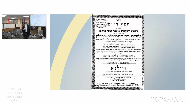 50:41
50:41
Dr. Henry Abramson (90)
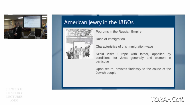 37:34
37:34
Dr. Henry Abramson (90)
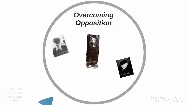 9:28
9:28
Series: This Week in Jewish History
Dr. Henry Abramson (90)
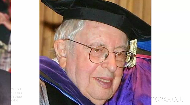 5:01
5:01
Series: This Week in Jewish History
Dr. Henry Abramson (90)
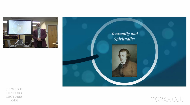 43:41
43:41
Dr. Henry Abramson (90)
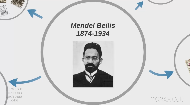 5:14
5:14
Series: This Week in Jewish History
Dr. Henry Abramson (90)
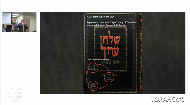 58:15
58:15
Dr. Henry Abramson (90)
 7:33
7:33
Historian Dr. Henry Abramson shows us the uncanny connection between the hanging of Haman's ten sons on Purim and the hanging of those convicted in the Nuremberg Trials.
Series: This Week in Jewish History
Dr. Henry Abramson (90)
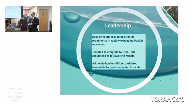 54:28
54:28
Dr. Henry Abramson (90)
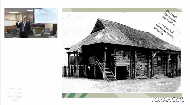 46:27
46:27
Dr. Henry Abramson (90)
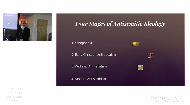 47:31
47:31
Dr. Henry Abramson (90)
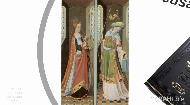 6:26
6:26
Series: This Week in Jewish History
Dr. Henry Abramson (90)
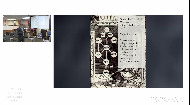 51:34
51:34
Dr. Henry Abramson (90)
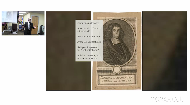 50:45
50:45
Dr. Henry Abramson profiles the well-known Dutch philosopher Boruch Spinoza (1632–1667). Dr. Abramson talks about his excommunication from the Jewish community, the surrounding factors that led to it and the reason for the harshness of the Rabbis in their rejection of Spinoza.
Dr. Henry Abramson (90)
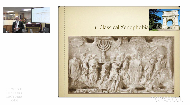 51:53
51:53
By examining the life of Nicholas Donin, a self-hating Jew of the thirteenth century, Dr. Henry Abramson discusses the development of anti-Semitism in Europe beginning in the Thirteenth Century. This insightful lecture by Dr. Abramson talks about the various manifistations of anti-Semitism including blood libels, public burning of the Talmud, and anti-Semitic art
Dr. Henry Abramson (90)
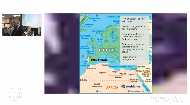 45:29
45:29
Dr. Henry Abramson (90)
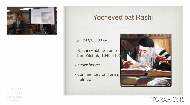 54:16
54:16
Dr. Henry Abramson (90)
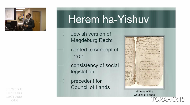 56:10
56:10
Dr. Henry Abramson (90)
 3:39
3:39
Series: This Week in Jewish History
Dr. Henry Abramson (90)
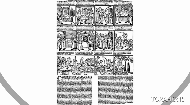 5:13
5:13
The Fourth Lateran Council, which met in 1215 at the behest of Pope Innocent III, issued several pieces of Church legislation with dire implications for Jews. The doctrine of transubstantiation was confirmed, leading to a new element in antisemitic canards: accusations that Jews “desecrated the host.”.
Series: This Week in Jewish History
Dr. Henry Abramson (90)
 54:15
54:15
Rabbi Moshe ben Maimon (1135-1204) was a towering figure in medieval Jewish history, and continues to cast a long shadow into the Jewish present. Nevertheless, the work of the philosopher-physician endured significant controversy, including an especially sad episode in which Jews actually consigned his works to the flames. Lecture delivered at Young Israel of Bal Harbour-Surfside.
Dr. Henry Abramson (90)
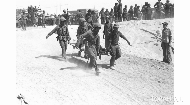 5:40
5:40
In November of 1977, Egyptian President Anwar Sadat flew to Israel to address the Knesset. His meeting with his former enemy Prime Minister Menachem Begin ultimately resulted in the sometimes strained but nevertheless enduring Israel-Egypt peace accord, but his unpopularity with hardline Egyptians, opposed to making peace with Israel, resulted in his assassination in 1981.
Series: This Week in Jewish History
Dr. Henry Abramson (90)
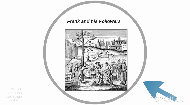 4:22
4:22
One of the more colorful false messiahs in Jewish history, Jacob Frank made a career of conversion--first to Islam, then to Christianity, all the while leading a neo-Sabbatean movement that emphasized antinomian "purification through transgression
Dr. Henry Abramson (90)
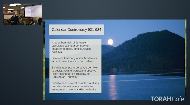 53:31
53:31
Sa'adia Gaon was an important Jewish philosopher and communal leader of the 9th and 10th centuries, famous in particular for his massive Book of Beliefs and Opinions. A child prodigy to rose to the highest ranks of Jewish scholarship, his thought left an indelible imprint on the Jewish spiritual tradition.
Dr. Henry Abramson (90)
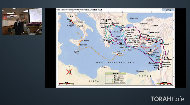 51:30
51:30
Dr. Henry Abramson (90)
 2:34
2:34
Hannah Szenes was a young Hungarian Jewish woman who joined the resistance in 1943, paratrooping into Nazi-occupied territories with British support. She was captured and tortured, but did not divulge secret information on her colleagues. Her poetry, including the classic "Blessed is the Match," survive and add to her legacy.
Dr. Henry Abramson (90)
 5:38
5:38
Pakistani terrorists attacked the Chabad House in Mumbai, India, on Wednesday, 29th of Heshvan, 5769 (26 November 2008). Part of a concerted attack that killed 179 and wounded hundreds, they murdered the young Chabad emissaries running the house, Rabbi Gavriel and Mrs. Rivky Holtzberg
Dr. Henry Abramson (90)
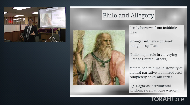 10:06
10:06
Dr. Henry Abramson (90)
 4:53
4:53
Series: This Week in Jewish History
Dr. Henry Abramson (90)
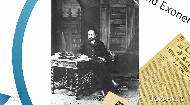 5:09
5:09
Date: October 9, 1859, birthday of Alfred Dreyfus Wrongly accused of espionage, Captain Alfred Dreyfus was sentenced to Devil's Island on the basis of remarkably tenuous evidence. Many critics, including the famous writer Emile Zola, argued that Dreyfus was unfairly charged simply because he was a Jew in the French army
Series: This Week in Jewish History
Dr. Henry Abramson (90)
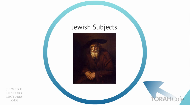 3:32
3:32
Series: This Week in Jewish History
Dr. Henry Abramson (90)
 10:23
10:23
Date: August 26, 1856 Reeling from the humiliating defeat of the Crimean War, the Russian Empire decides its policy of forcibly conscripting Jewish boys into military service is counterproductive, and finally abandons the cruel decades-old policy of taking underage children into thirty-one years of military training and service.
Series: This Week in Jewish History
Dr. Henry Abramson (90)
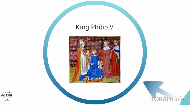 7:46
7:46
Date: August 21, 1321 (August 21, 1321) The summer of 1321 was plagued with rumors that Jews had entered into a conspiracy with lepers (some versions also included Muslims) to poison the wells of Europe, resulting in mass hysteria and mob violence
Series: This Week in Jewish History
Dr. Henry Abramson (90)
 4:35
4:35
Date: August 11, 1778 (August 11, 1778) In August of 1778, the non-Jewish writer Gotthold Ephraim Lessing wrote to his brother of a new literary project designed to further tolerance of Jews in German society. The result was Nathan the Wise, a sensation that was initially banned by the Church and heavily criticized by antisemites of the day.
Series: This Week in Jewish History
Dr. Henry Abramson (90)
 5:51
5:51
Date: August 5, 1772 (6 Av, 5532) Officially banned in 1479, no Jews lived in the Russian Empire until Tsarina Catherine II conquered a major portion of Polish territory, instantly inheriting the largest single concentration of Jews in the world
Series: This Week in Jewish History
Dr. Henry Abramson (90)
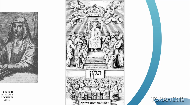 7:07
7:07
Date: August 1, 1626 (9 Av, 5386) Devastated and demoralized after the Khmelnytskyi Rebellion in the 17th century, Jews around Europe were astounded to hear that a young Kabbalist named Shabbetai Tsvi had proclaimed himself the long-awaited Messiah.
Series: This Week in Jewish History
Dr. Henry Abramson (90)
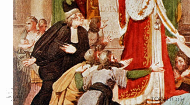 4:06
4:06
Date: July 23, 1858 (12 Av, 5618) In 1847, the citizens of London elected its first Jew, Lionel de Rothschild, to the House of Commons. Rothschild, however, refused to take the Christian oath required of all members, and resigned without taking his seat in Parliament
Series: This Week in Jewish History
Dr. Henry Abramson (90)
 3:39
3:39
Date: July 22, 1878 (21 Tammuz, 5638) Beloved for his children's stories, Henryk Goldszmidt wrote under the pen name Janusz Korczak. A lifelong advocate for children's rights, he ran an orphanage in Warsaw that was world-famous for his innovative pedagogic techniques
Series: This Week in Jewish History
Dr. Henry Abramson (90)
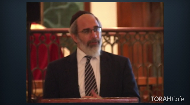 54:33
54:33
Widely regarded as the father of the 18th-century Hasidic movement, Israel ben Eliezer was a popular and hugely influential teacher of Judaism in eastern Europe. This lecture, which draws on research conducted in Polish archives after the fall of Communism, sheds additional light on the life and works of the Ba'al Shem Tov.
Dr. Henry Abramson (90)
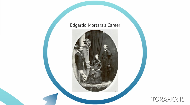 5:14
5:14
Date: June 23, 1858 (11 Tammuz, 5618) In the summer of 1858, 6-year old Edgardo Mortara, a Jewish boy living in Bologna, Italy, was forcibly taken from his home by Italian police acting at the behest of the Inquisition
Series: This Week in Jewish History
Dr. Henry Abramson (90)
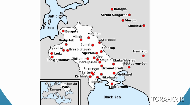 6:22
6:22
Date: July 29, 1881 (3 Av, 5641) With the assassination of Tsar Alexander II in 1881, the Jews of the Russian Empire were assaulted by a massive wave of attacks called "pogroms" that devastated hundreds of villages
Series: This Week in Jewish History
Dr. Henry Abramson (90)
 52:16
52:16
Dr. Henry Abramson (90)
 10:40
10:40
Series: This Week in Jewish History
Dr. Henry Abramson (90)
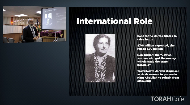 48:57
48:57
Dr. Henry Abramson (90)
 6:03
6:03
Date: July 1099 (Tammuz 4859).
Series: This Week in Jewish History
Dr. Henry Abramson (90)
 3:50
3:50
The design of the Jewish badge changed through the centuries but the purpose didn’t. Dr. Henry Abramson illustrates various symbols that Jews have been required to wear in order to identify Jews and keep them separate from Christians.
Series: This Week in Jewish History
Dr. Henry Abramson (90)
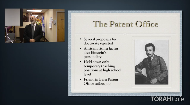 51:51
51:51
Dr. Henry Abramson (90)
 48:43
48:43
Dr. Henry Abramson (90)
 52:57
52:57
Dr. Henry Abramson (90)
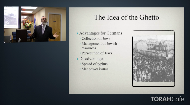 55:37
55:37
Buried for posterity, the research and writings of the Warsaw Ghetto were coordinated by Emanuel Ringelblum. Dr. Henry Abramson provides a clear, concise history of the period leading up to the war, and Hitler's goals. Dr. Abramson enumerates the factors that led to what could be considered a continuation of WW1
Dr. Henry Abramson (90)
 52:42
52:42
How does a Russian Czar rid his empire of a "foreign, indigestible mass", also known as the Jews? Dr. Henry Abramson explores the historical background of the Haskala movement and Shimon Dubnow's role
Dr. Henry Abramson (90)
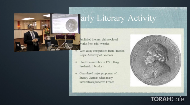 42:55
42:55
Moses Mendelssohn was a hugely influential thinker in 18th-century Germany. An unusually gifted intellect, he became the primary spokesperson for the emancipation of Jews in the 18th century, and his cause was championed by many non-Jewish liberals of the era
Dr. Henry Abramson (90)
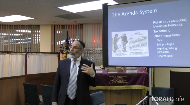 47:09
47:09
Such a clear history of Jews in Western Europe and the Ukraine. Dr. Henry Abramson relates the factors leading up to the devastation of the Chmielnicki massacres. Nathan of Hanover is the historian of record who provides a gripping account of the pogroms and yet is even handed in his recounting of history
Dr. Henry Abramson (90)
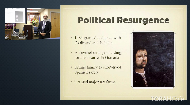 49:07
49:07
What factors led up to the Spanish Inquisition and yet produced some of the greatest Jewish commentators? The triangular society of Spain gave rise to advantages for the Jews, as well as leading to one of the greatest destructions. Dr. Henry Abramson discusses the life and times of Don Isaac Abravanel, a prolific writer, renowned statesman and proverbial wandering Jew
Dr. Henry Abramson (90)
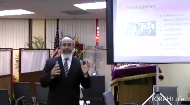 58:44
58:44
2/3s of Berlin Jews converted to Lutheranism. In the 1800s baptism was their ticket to European culture. Dr. Henry Abramson describes European society and what led the German Jews to step away from their Jewish practices and into secular society
Dr. Henry Abramson (90)
 49:44
49:44
Jewish education for women is radically different today. Dr. Henry Abramson begins with a brief history of the Talmud. He describes the times and family tragedies of Bruria before delving into her recognized contributions to the Talmud. Dr Abramson concludes with a strange account of her possible end as described by Rashi
Dr. Henry Abramson (90)
 34:57
34:57
Rabbi Yosef Caro excelled in Torah scholarship despite years of expulsions in the Sephardic world. Dr. Henry Abramson, a well known educator, and expert on the history of the Talmud, presents the life and times of Rabbi Yosef Caro. He explains what roles Rav Caro's works played in Jewish scholarship and practice from the 15th century until now
Dr. Henry Abramson (90)